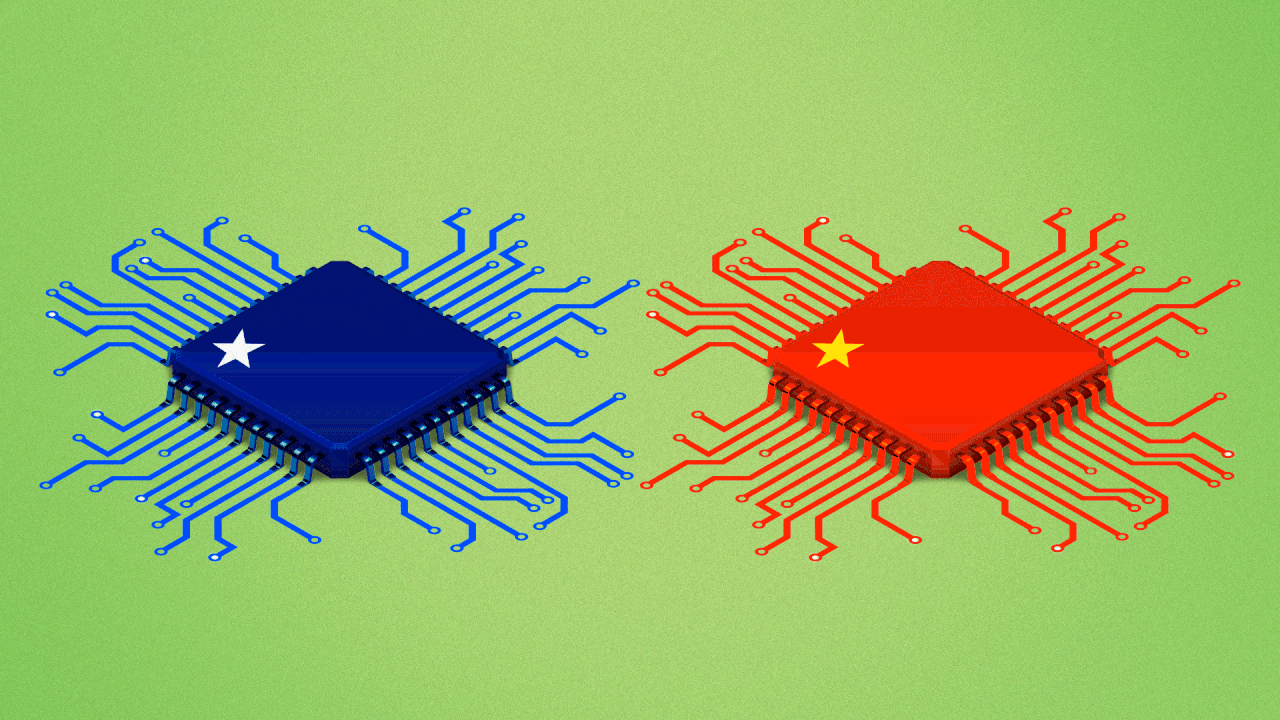Former Google CEO and others call for U.S.-China tech "bifurcation"

A new set of proposals by a group of influential D.C. insiders and tech industry practitioners calling for a degree of "bifurcation" in the U.S. and Chinese tech sectors is circulating in the Biden administration. Axios has obtained a copy.
Why it matters: The idea of "decoupling" certain sectors of the U.S. and Chinese economies felt radical three years ago, when Trump's trade war brought the term into common parlance. But now the strategy has growing bipartisan and even industry support.
The report, called "Asymmetric Competition: A Strategy for China & Technology," was authored by an informal working group formed last summer with 15 participants writing in their private capacities, including:
- Eric Schmidt, former CEO of Google and technical adviser at Alphabet, and co-founder of Schmidt Futures. (Google exited China in 2010 while Schmidt was CEO).
- Jared Cohen, CEO of Jigsaw, a tech incubator created by Google, and former adviser to Condoleezza Rice and Hillary Clinton.
- Richard Fontaine, the CEO of the Center for a New American Security, whose co-founder Kurt Campbell now occupies a top position on Biden's National Security Council.
- Liz Economy, China scholar at the Council on Foreign Relations and Stanford University's Hoover Institution.
- Alexandr Wang, CEO and founder at Scale AI.
- Marissa Giustina, a quantum electronic engineer at Google.
What they're saying: "America’s technological leadership is fundamental to its security, prosperity, and democratic way of life. But this vital advantage is now at risk, with China surging to overtake the United States in critical areas," the authors write.
- The report "advances policies that position the United States to out-compete China without inviting escalatory cycles of confrontation, retaliation, or unintended conflict."
The nature of the challenge, according to the report:
- The competition is "asymmetric," meaning "China plays by a different set of rules that allow it to benefit from corporate espionage, illiberal surveillance, and a blurry line between its public and private sector."
- We're heading towards somewhat tech spheres. "Some degree of disentangling is both inevitable and preferable," the authors write. "In fact, trends in both countries — and many of the tools at our disposal — inherently and necessarily push toward some degree of bifurcation." That's because the alternative to bifurcation is a world in which China's non-democratic norms have "won."
- There will be trade-offs, such as between "creating risk-tolerant research environments that encourage innovation versus security/espionage risks."
Their proposed solutions:
- The creation of a national tech analysis and forecasting center.
- Building more resilient supply chains by investing in domestic infrastructure and "ally-centric production."
- Improving education and reducing immigration bottlenecks to ensure a strong supply of highly skilled labor.
- A government redesign across the executive branch to guide a "new era of technological statecraft."
- New multilateral initiatives, including an alliance of democracies called the "T-12" to coordinate responses to tech competition, an "International Technology Finance Corporation," and the creation of "multilateral trust zones" where integration can be safely achieved.
What to watch: Whether or not the proposal gets traction in the Biden administration, its emphasis on multilateralism fits with the administration's goals and priorities.
Editor's note: This story was updated to reflect that the report's authors were writing in their private capacities and that Eric Schmidt is also a co-founder of Schmidt Futures.
Go deeper: